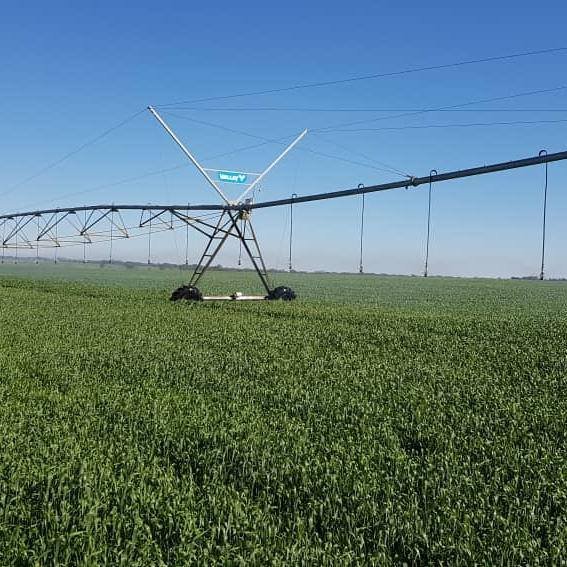Upenyu Chaota
The
minister of State in Vice President Kembo Mohadi’s Office and Masvingo North
Member of Parliament (MP) Davison Marapira has taken the lead in making sure
that the country saves millions from importing wheat by putting about 60
hectares under winter wheat production.
In May,
Vice President Constantino Chiwenga who chairs the Cabinet Food Security and
Nutrition Cluster, launched the 2020 Command Agriculture winter wheat planting
programme, with a set national target of 416 000 tonnes.
Marapira
said that he has done his part in making sure that Masvingo province
contributes to the set national target but bemoaned water shortage as the
biggest impediment to his farming.
“I have
put 60 hectares of land under wheat production out of my arable irrigable land
of 220 hectares under Valley Centre Pivot.
“I am
expecting yields of 9 tonnes per hectare which gives me a total of plus or minus
540 tonnes of high quality wheat.
“I have
a serious challenge of water to cover the 220 hectares in winter season. I am harvesting water wherever it is possible
through construction of weirs.
“Of
late, l have drilled 12 high yielding commercial boreholes. I have constructed an overnight storage or
reservoir which will store 7 megalitres of water. This will help a lot in
providing water to the 220 hectare center pivots,” said Marapira.
Under
the programme, about 80 000 hectares across the country are expected to be put
under winter wheat.
The
targets were set according to each province’s capacity and comparative
advantages.
Masvingo
province alone has a target of 4 160 tonnes of wheat under 800 hectares.
Mashonaland
Central will plant 18 000 hectares and produce 93 600 tonnes; Mashonaland West
35 000ha with a target of 182 000 tonnes; Mashonaland East 12 000 hectares with
a 62 400 tonnes target; Manicaland 7 000 hectares and an expected 36 400 tonnes
yield and Midlands 4 500ha and 23 400 tonnes.
Matabelaland
South is expected to plant 700ha and produce 2 000 tonnes while Matabeleland
North will grow 2 000ha with an estimated harvest of 10 400 tonnes.
Marapira
said the country is blessed with abundant water bodies but bemoaned to poor
management of such a resource saying it is time the precious liquid is put to
good use for the benefit of the people.
“Wheat
is used as raw materials for bread making and a lot of other materials used in
the food industry. Its byproducts called
wheat brand is used for stock feed.
“It is
very unfortunate that although we are blessed with abundance of water in
Zimbabwe we are very bad users of water.
“We
allow water to go to the oceans instead of using that water for irrigation of
wheat to stop the country from importing wheat and save the much needed foreign
currency to import critical essentials which we can’t produce as a
country.
“The
country uses plus or minus US$300 million in the importation of wheat, flour
and other wheat products which can easily be produced by our industry,” said
Marapira.
He said
that the government must make sure that all people with farms are producing and
not just holding land for speculative purposes.
“All
farmers with good water reservoirs who are not producing should have their
farms recovered and allocated to people with good management and capital to run
these farms.
“There
should be serious production and productivity on all farms for the country to
realize good foreign currency inflow, employment up to 70 percent, food
security and generation of raw materials for our industries,” said Marapira.

